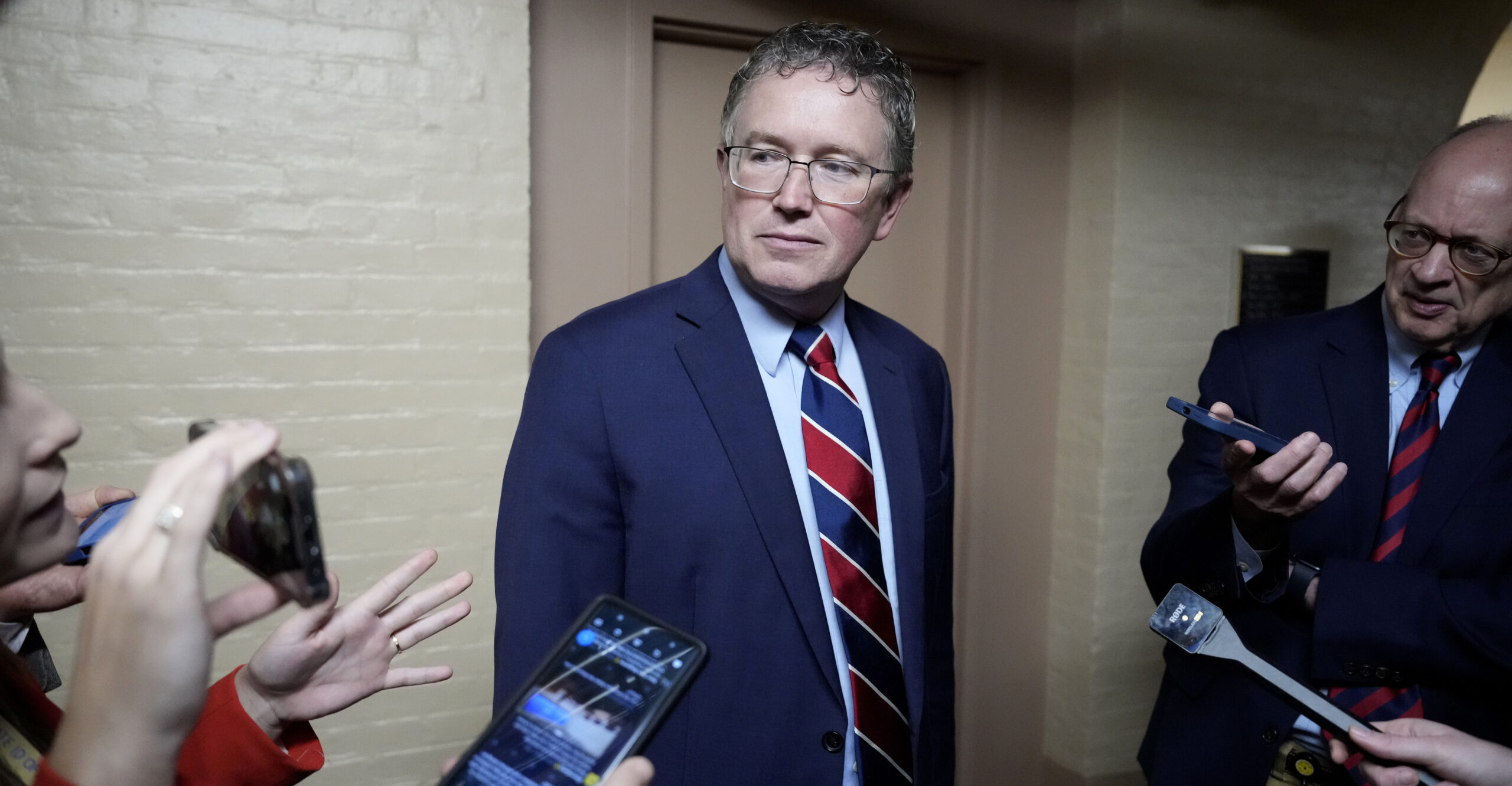Welcome to budget week
SNEAK PEEK — Wednesday’s budget looms and we’ve got the details. — Bank of England told to clamp down on excessive compliance breaches. — Change of rules to allow fractional shares in ISAs set for delay. Good morning readers! We probably don’t need to remind you that it’s budget week this week. It’s going to be […]

Presented by Nationwide

|
By ELEANOR MYERS
with HANNAH BRENTON and JAMES FITZGERALD
PRESENTED BY
![]()
| SNEAK PEEK |
— Wednesday’s budget looms and we’ve got the details.
— Bank of England told to clamp down on excessive compliance breaches.
— Change of rules to allow fractional shares in ISAs set for delay.
Good morning readers! We probably don’t need to remind you that it’s budget week this week. It’s going to be an exciting one, so do check in with your favorite financial services newsletter.
Send tips to: emyers@politico.co.uk, jfitzgerald@politico.co.uk & hbrenton@politico.eu
And why don’t you follow us on Twitter/X: @eleanor__myers, @jamesfitzjourno & @hannahcbrenton
| DRIVING THE DAY |
HERE WE GO AGAIN: On Wednesday U.K. Chancellor Jeremy Hunt will announce his fiscal measures to try and get the economy back on track, as well as woo potential voters with likely tax cuts and investment reforms. Many reckon this is the last fiscal statement before the next general election, but MFS U.K. isn’t so sure about that.
Retail politics: Tax cuts are a given, but reforms to get U.K. listings humming again are stealing a lot of the limelight: a GB ISA, as POLITICO revealed, and measures announced over the weekend (inspired by this run?) including a plan to reinstate the eligibility criteria to qualify as an “angel investors,” designed to help SMEs raise finance, and rules requiring pension funds to declare how much they invest in the U.K. vs overseas. The chancellor could also look at slashing stamp duty on retail investment gains, which would provide more incentives for investing in the stock market and boost the London Stock Exchange.
Ouch: Hunt’s desire to boost the economy and halt the London listing exodus is noble, but there are glaring problems. First, limiting ISA investments to U.K. shares or forcing investors into “home bias” could leave them worse off, as people’s pensions and investments are typically diversified abroad, and the LSE is made up of overseas companies. One industry figure emailed in to call the chancellor’s GB ISA plans “jingoistic bullshit”
Tax time: Hunt is widely expected to announce a further cut to National Insurance of probably 1p or 2p, despite warnings from senior economists. Reports over the weekend show that Hunt is beginning to downplay big cuts, while also detailing his last-ditch attempts to raise the funding to do so, including via the sale of a chunk of NatWest shares.
Lack of enthusiasm: City minister Bim Afolami told the Telegraph last week that young people in the U.K. are “inherently capitalist” and the Tories should “support their ambition with tax cuts.” But a recent YouGov poll of 18 to 24 year-olds revealed that 50 percent want the government to prioritize public spending over tax cuts. Righto.
Raiding the coffers: Under consideration include the nuclear options of abolishing non-domiciled status (£3.6 billion saving) and inheritance tax (£7 billion saving) — but both moves would be weird, particularly the former as it is a Labour policy, and, of course, Rishi Sunak’s family famously benefits from it. Don’t rule it out, though, as the more the chancellor can save, the more he can spend on tax cuts — even though no one aside from Liz Truss and a handful of iffy think-tanks seems to want them.
 |
| WHAT’S ON |
Monday, n.a.
Tuesday, the Bank of England publishes figures on U.K. International Reserves, 9:30 a.m. The City UK & Financial Services Skills Commission hosts conference. The Prudential Regulation Authority closes a consultation on shadow banking. The Economic Affairs Committee hosts hearing on how sustainable the national debt is, 3 p.m.
Wednesday, TechUK hosts dialogue between government, regulators and industry on operational resilience for critical third parties, from 9 a.m. U.K. budget, 12:30 p.m.
Thursday, the Treasury closes a consultation on resolution reforms. The Bank of England publishes its Monthly Decision Maker Panel data for February 2024. 9:30 a.m. James Benford of the Bank of England will give a speech at the Big Data & AI World conference, 10 a.m. Central banks hold conference on diversity. Tapestry Networks host its Financial Services Leadership Network, from 2 p.m.
Friday, the Financial Conduct Authority closes a consultation on money market fund reforms.
**A message from Nationwide: Unlike the banks, Nationwide Building Society is owned by its members, not shareholders. That’s anyone who banks, saves or has a mortgage with us. Which means we can always focus on what’s best for them. It’s our fundamental difference and what makes us a good way to bank.**
| ECONOMY |
BOOSTING INVESTMENT: One reform that the government could consider to boost U.K. investment would be to allow providers to sell retail investors fractional shares for ISAs. This is not allowed under decades-old ISA regulations, but the Treasury announced in its Autumn Statement docs that it would change the rules, to the relief of companies like Freetrade and Trading 212 who argue the rules don’t make sense and were doing it anyway, to the ire of HMRC who want to penalize them for it.
Scoop alert: The aforementioned companies lobbied the Treasury hard to change the rules, and have since been undergoing discussions with No.11 advisors and HMRC about the best way to do this — with hopes the changes would come into force this April. However, MFS U.K. has seen an email sent to stakeholders by HMRC and the Treasury stating they are moving onto the next stage of drafting amendments and working “as quickly as possible” … but at this stage it could take “three to six months depending on the complexity of the amendments.” A short technical consultation is expected in summer as well. Uh-oh.
Fractional shares … are slivers of company shares and ETFs that are smaller than a single share. They are hugely popular in the US, as they allow investors with less capital to invest in big companies at a fraction of the price.
Why this matters: HMRC has been gunning for the companies selling fractional shares to ISA customers for nearly a year, and wants them or their customers to pay tax on investment gains and penalties. The Treasury did not put a deadline on when it would amend the regulations, but a lengthy delay means trading companies will likely have to sell off fractional shares held in hundreds of thousands of retail investors’ ISAs before the next tax year starts, and pay penalties, because HMRC is dragging its feet.
A government spokesperson said: “We are working as quickly as possible to bring forward legislation by the end of the summer which will balance the needs of industry and investors while adhering to existing regulatory frameworks. This follows detailed engagement with industry stakeholders and the FCA. Wherever possible, HMRC will work to ensure that investors are not penalized due to errors by an ISA manager.”
| BANK OF ENGLAND |
BOE GETS HOMEWORK ON ITS OWN COMPLIANCE RISKS: The Bank of England has been told to do more to clamp down on reputational risks within its doors, after a damaging incident in 2019 when hedge funds obtained early access to an audio feed of market-moving press conferences.
NAO report: A new report from the U.K.’s public spending watchdog, out today, found the BoE has made progress on overhauling its approach to risks which affect its reputation or operations after that episode, but the number of compliance breaches is still above what the Bank has set as an acceptable level.
Remember this conflict of interest? The focus comes after another embarrassing incident for Threadneedle Street in 2017 when then-Deputy Governor Charlotte Hogg resigned weeks into the role after failing to declare her brother worked for Barclays.
Risk reforms: Since then, the Bank has set up its own risk directorate and simplified the internal policies staff have to comply with from 393 to 78. It has also tried to create an open culture where staff are more likely to report incidents or concerns.
Not there yet: But the NAO said it still has some way to go. There were still 628 minor and 28 major compliance breaches of staff policies in the year to August 2023 — with more serious cases involving conflicts of interest that affect an official’s independence, ranging down to emails being sent to the wrong address.
Next steps: The watchdog said the Bank should do more to review whether there are differences in perceptions of legal and ethical risks, between junior and senior staff, or new employees compared to old hands. And it should ensure it continues to improve the quality and consistency of the information it tracks, as well as making sure staff feel comfortable raising concerns.
| RETAIL FINANCE |
99 PROBLEMS BUT A MORTGAGE AIN’T ONE: One thing you won’t see in the budget is 99 percent mortgages, as the Treasury has scrapped them before they’ve even begun, according to a report on Friday. The idea was short-lived, with the possibility known among banks weeks prior and formally put forward as a potential budget policy at the end of Feb.
No thanks: The idea was not popular with U.K. lenders, which acknowledged that although it might help with the issue of finding money for a deposit, it wouldn’t necessarily help buyers get a mortgage given how high house prices are relative to salaries. There was also the obvious concern that a buyer having just a 1 percent equity stake in a property reduces the incentive for the homeowner to weather the storm of house prices dropping, resulting in potentially negative equity, making it a far higher risk for banks.
**Berlin Playbook, the newest addition to POLITICO’s Playbook family, launched! Täglich informieren wir Sie darüber, was am vor Ihnen liegenden Arbeitstag wirklich zählt. Die aktuellsten Ereignisse aus Kanzleramt, Bundestag und den politischen Zentren der Welt. Mit nur einem Klick anmelden.**
| MARKETS |
SYNTHETIC STERLING LIBOR COUNTDOWN: The Financial Conduct Authority on Friday warned banks and market players that the clock is ticking down to the end of the publication of three-month synthetic sterling London Interbank Offered Rate (Libor). The FCA is phasing out Libor rates in the wake of rigging scandals, with the last remaining synthetic sterling setting set to end on March 28.
End-September dollar deadline: U.S. dollar synthetic rates will end in September. “Parties to contracts still referencing LIBOR should be taking steps to transition to robust, appropriate reference rates, re-negotiating with counterparties where necessary,” the City watchdog said.
DERIVATIVES REPORTING Q&A: The FCA on Friday also published a series of questions and answers on changes to derivatives reporting rules, inherited from the EU. Most of the updated requirements kick in from the end of September. Read them here.
| FINTECH |
FCA’S NEW POWERS AGAINST CLOUD COMPUTING FIRMS: The FCA has written new powers into its rulebook, preventing critical third parties (CTPs), such as cloud computing firms, from offering services to financial firms if they don’t comply with new rules. The handbook’s provisions give the FCA power to prohibit the CTPs from entering into arrangements or continuing to provide services to financial firms as part of enforcement provisions in the upcoming operational resilience rules.
| WHAT WE’RE READING |
Intermittent trading venue plans to be set out in Wednesday’s budget, the Financial Times reports.
Jeremy Hunt has given over £100k to local Tory party in effort to retain seat, the Guardian finds.
SJP braced for £426m payout — and this is just the beginning: The Times investigates.
Banks fear Apple is stockpiles British spending data, writes the Telegraph.
Thanks to: Fiona Maxwell & Izabella Kaminksa.
**A message from Nationwide: Our mutual status means that Nationwide does not have to pursue profit to pay shareholders dividends. Instead, we return additional value to our members as owners through our Fairer Share products and payments, and a focus on keeping branches open. To support diversity of business models, we would like all policymakers to commit to doubling the size of the cooperative and mutual economy, and in particular strengthening mutuals in the financial services sector. Key actions could include better consideration of mutuals when making regulation and legislation, new capital instruments that work for mutuals and a dedicated “Minister for Mutuals” in Government. Find out more.**




















